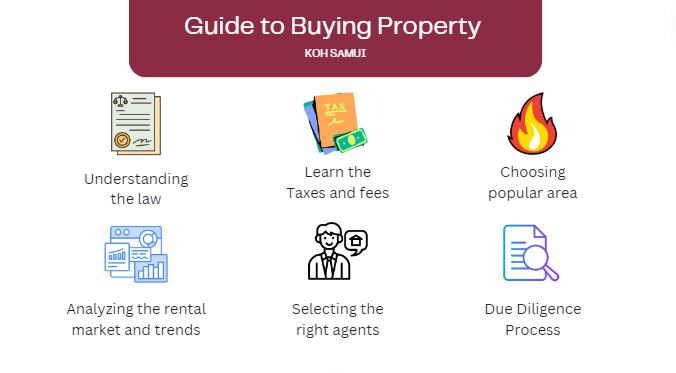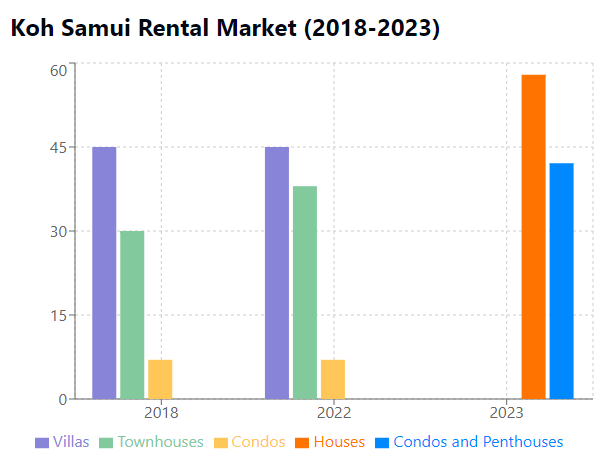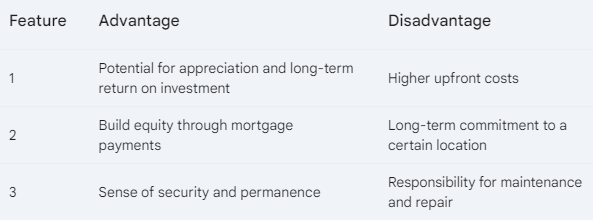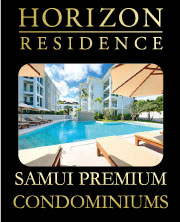- Home
- Buy
- Rent Discover the ideal rental property in Koh Samui, a tropical haven that offers more than just stunning beaches and clear blue skies. Our comprehensive listings include a diverse selection of properties for rent, from modern apartments in bustling neighborhoods to secluded villas with breathtaking ocean views. Whether you’re planning a short vacation or looking for a long-term stay, Koh Samui has a multitude of rental options to suit your needs and lifestyle. Explore our Koh Samui properties for rent and find your home away from home in this island paradise.
- Developments
- Construction
- Property Management
- Invest
- Information
- THB
- USD
- EUR
- JPY
- CNY
- AUD
- CAD
- GBP
- HKD
- CHF
- Square Feet
- Square Meters
Luxury Villas & Property for Sale and Rent in Koh Samui, Thailand
Guide to Buying Property on Koh Samui
Own a slice of paradise on Koh Samui
If you’re planning to buy a stunning beachfront villa, a quite retirement haven, or a smart investment opportunity, this guide has got you covered. We will walk you through everything you need to know. From the different types of properties available and the legal details you should be aware of as well as to finding the perfect spot and making a good investment. Buying a property in Thailand can be confusing even with a guide. If you are not sure about how to handle it, make sure to get in touch with us here at Horizon Homes.
Villas and
Houses

Koh Samui offers a diverse range of properties to suit every taste and budget:
- Budget-Friendly Options: Charming bungalows and garden homes starting at 2-3 million Thai baht
- Mid-Range Luxury: Garden view villas with private pools from 5-6 million Thai baht
- Breathtaking Views: Sea view villas with pools starting around 10-12 million Thai baht
- Ultimate Beachfront Living: Exclusive properties from 30-40+ million Thai baht
Hot Tip: The most sought-after properties are modern, 3+ bedroom sea view villas in the northeast, typically priced between 12-16 million Thai baht.
Apartments and Condominiums

While Koh Samui’s condo market is more limited than other Thai hotspots due to stricter regulations, there are still fantastic options available:
- Entry-Level Units: Compact 30 sqm apartments starting from just 30,000 USD
- Location, Location, Location: Focus on the northeast for the best selection and proximity to Airport
- Ownership Tip: Foreign buyers should note that freehold condominium units often come at a premium compared to those held by Thai companies.
Land
Investment

Investing in Koh Samui land can be lucrative, with prices consistently rising over the years. Prime areas include:
Important Considerations:
- Zoning Regulations: Implemented in 2006, these dictate land use (e.g., agriculture, residential, commercial)
- Due Diligence: Always consult with a local lawyer to verify zoning and building restrictions
- Environmental Impact: Be aware of regulations that may affect construction size and design in villa-zoned areas
What are the key factors to consider when buying property in Koh Samui?
- Thailand Limited Company Method where you can establish a Thai company with majority Thai ownership (>51%) to buy the property.
30+30+30 Leasehold Method where Foreigners can lease the land for up to 90 years. - Foreigners can own up to 49% of the total floor area in a condominium building in Thailand. (Currently considering 75%)
- Foreigners can’t own lands, villas, houses directly, but they can use the company or leasehold methods.
- The foreigners can have an exception to own a land, if they invest minimum of 40 million TBH or be married to a Thai citizen.
- Thailand’s strict property ownership laws aim to prevent overdevelopment and preserve land for Thai citizens.
- Legal documents required for foreigners to buy property in Koh Samui include title deeds (For more information on title deeds, click here), sales agreements, and tax documents. Read more about Due Diligence.
- Additional costs include transfer tax, legal fees, and brokerage fees.
- Negotiating with Thai property owners requires patience, humility, and understanding of cultural nuances.
- Working with experienced property agencies like Horizon Homes can help foreigners navigate the process smoothly.
- Transfer registration fee: 2% of the property value
- Withholding tax: 1% of the property value
- Specific business tax: 3.3% of the property value
- Stamp duty: 0.5% of the property value
Tax Benefits for Property Owners in Koh Samui:
- No annual property tax for personal use residences.
- Rental income tax is relatively low, typically around 5-10% of rental income.
- No inheritance tax on property for immediate family members.
- Capital gains tax exemption if the property is owned for more than 5 years.
Visa Options for Property Owners in Koh Samui:
- Retirement Visa: Available for those over 50 with proof of funds or pension.
- Investment Visa: Requires a minimum investment of 10 million THB in approved sectors, including real estate.
- Elite Visa: A long-term visa program with various options, offering 5-20 year stays for a one-time fee.
- Business Visa: For those running a business in Thailand, which could include managing rental properties.
How can foreigners maximize their investment returns in Koh Samui's real estate market?
Choosing the popular areas in Koh Samui for investment
Koh Samui is larger than some other Thai tourist destinations, making location a critical factor in property investment.
Popular areas include:
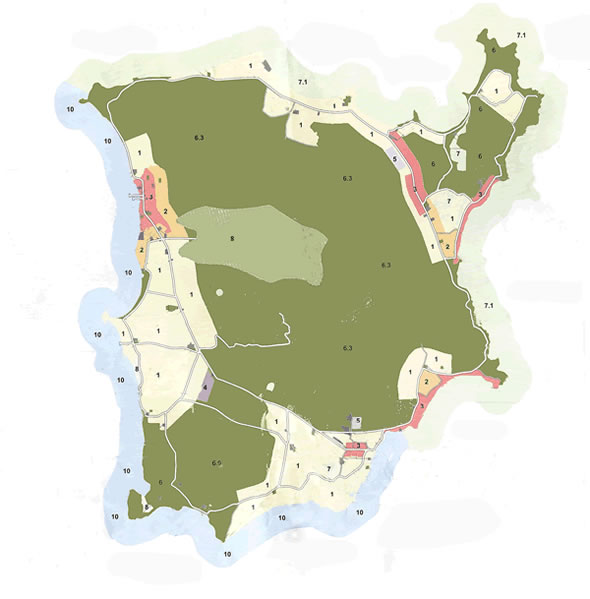
Chaweng
Add Your Tooltip Text Here
Lamai
Add Your Tooltip Text Here
Bo Phut
Add Your Tooltip Text Here
Maenam
Add Your Tooltip Text Here
Choeng Mon
Add Your Tooltip Text Here
Nathon
Add Your Tooltip Text Here
Taling Nam
Add Your Tooltip Text Here
Lipa Noi Beach
Key Points
Chaweng
Lamai
Bo Phut
Maenam
Choeng Mon
Lipa Noi Beach
Chaweng
- Tourist Area
- Nightlife
- Tropical Beach
- Luxury Resort
Lamai
- Value Hotels
- Nightlife
- Restaurants
- Quieter tourist Area
Bo Phut
- Fishermans Village
- Trendy Hotels
- Great Night Market
Maenam
- Ferries
- Laid Back
- Cheap Accommodations
Choeng Mon
- Gorgeous Shallow Beach
- Restaurants
- Great for Families
Lipa Noi Beach
- Western Side of Island, so great sunsets
- Pristine White Sandy Beach
- Restaurants near the beach, ideal for Families
- Ferry Access
Consider factors such as proximity to beaches, amenities, airports, and future development plans when choosing a location. The northeast generally commands premium prices, the west coast presents opportunities for those seeking more affordable options without compromising on natural beauty.
- Tourism Surge:
- Anticipated winter holiday boom driving up short-term rental prices.
- Luxury villas particularly sought after for stays up to three months.
- Infrastructure Improvements:
- Enhanced roads and amenities boosting townhouse appeal.
- Attracting long-term residents seeking comfortable, integrated living.
- Economic Growth:
- Steady expansion of Koh Samui’s economy.
- Increased foreign investments in the real estate sector.
- Diverse Tenant Preferences:
- Condo market resilience driven by demand for modern, compact living spaces.
- Attracting a mix of short-term visitors and long-term expatriates.
Analyzing the Rental Market for Koh Samui (2018-2023)
The Koh Samui rental market experienced notable transformations from 2018 to 2022, with each property type carving its niche:
- Villas: Maintained a steady 45% market share, their enduring appeal rooted in spaciousness and privacy.
- Townhouses: Exhibited remarkable growth, surging from 30% in 2018 to 38% by 2022.
- Condos: Represented a smaller yet consistent segment, fluctuating between 6% and 8%.
The year 2023 brought sharper market segmentation:
- Houses (including townhouses): Dominated with 57.9% market share.
- Condos and penthouses: Claimed a substantial 42.1% of the market.
What qualities should a foreigner look for in a real estate agent in Koh Samui?
Choose a well-established, independent agent familiar with Koh Samui’s real estate market. They should understand both local and international buyers’ needs and be knowledgeable about Thai property laws and the specific nuances of island property ownership.

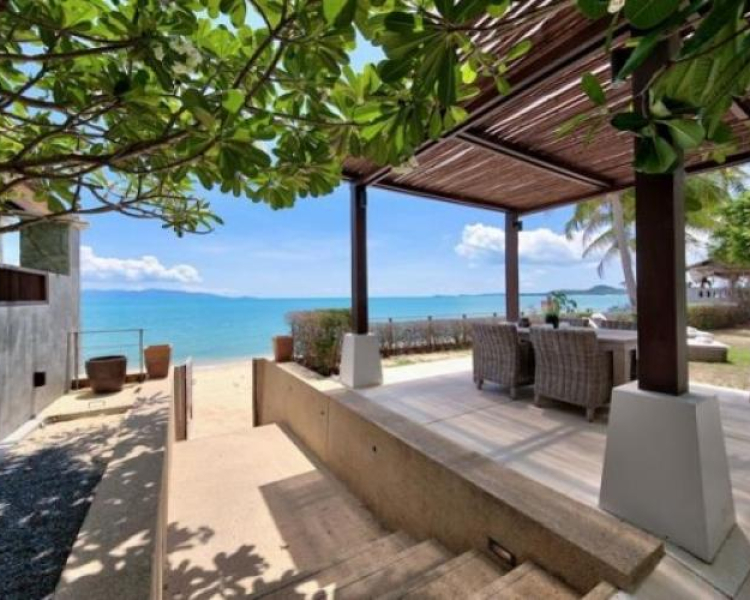
How can foreigners secure financing for a property purchase in Koh Samui?
Foreign buyers typically need to finance their purchase with cash, as obtaining loans from Thai banks can be challenging. Secure your funding before entering negotiations with property developers or sellers. Some developers may offer payment plans for off-plan properties.
What steps should foreigners take to conduct thorough due diligence on a property in Koh Samui?
After negotiating the price and paying a holding deposit, you’ll sign a reservation agreement. Conduct thorough due diligence within 30-45 days. Which includes:
- Verifying legal right of access (particularly important for hillside properties)
- Confirming the property is unencumbered
- Ensuring the seller has proper rights to sell
- Checking compliance with Thai real estate regulations
- Verifying water and electricity supply (crucial on an island)
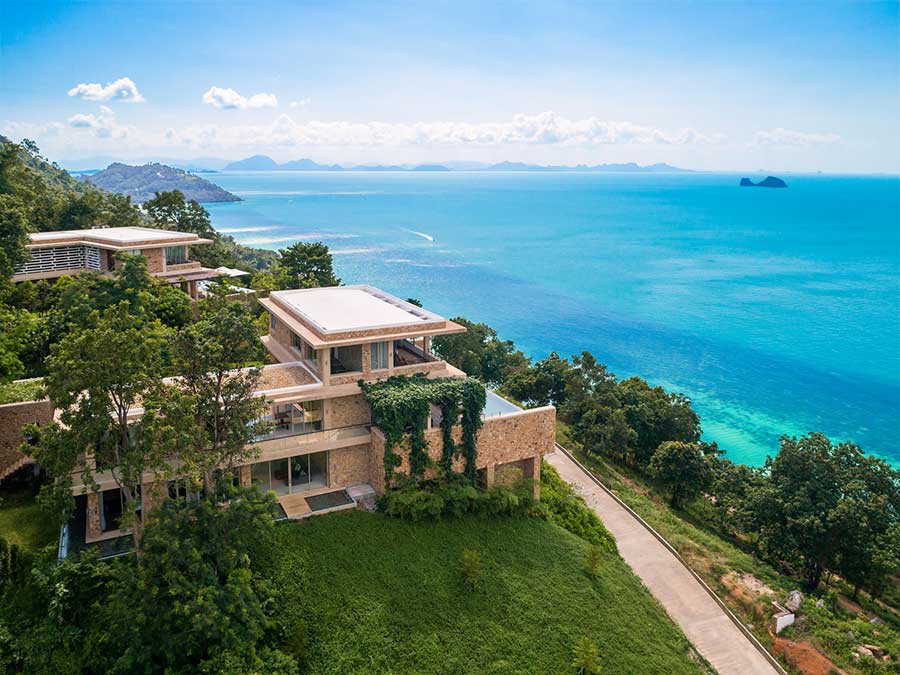
Pros and cons for buying properties in Thailand.
What are the main advantages and disadvantages of buying property in Thailand?
Absolutely, yes. Investing in a foreign property, especially in a place as exotic as Koh Samui, requires careful consideration of both the potential benefits and drawbacks. By conducting thorough research, foreign investors can make informed decisions about whether investing in Koh Samui property aligns with their financial goals and risk tolerance.
Top 10 Tips for Buying Property in Koh Samui
1. Understand the Market:
As of 2024, the average property price in Koh Samui is around $4,500 per square meter. Familiarize yourself with current market trends and prices in different areas.
2. Choose the Right Location:
Chaweng, on the east coast, is the most developed area with the best amenities and beaches. However, consider your preferences for lifestyle, views, and proximity to services when selecting a location.
3. Be Aware of Foreign Ownership Laws:
Foreigners cannot directly own land in Thailand. Research options like leasehold agreements, setting up a Thai company, or focusing on condominium units with foreign ownership quotas.
4. Consider Investment Potential:
Koh Samui offers attractive rental yields, with some luxury properties producing up to 30% yields per year. This makes it a potentially lucrative investment opportunity.
5. Understand Tax Implications:
Thailand has relatively favorable property taxes. Transfer fees (2% of registered value) are typically paid by the buyer, while stamp duty (0.5% of registered value) is usually the seller’s responsibility. There’s no annual property tax for personal-use residences.
6. Explore Visa Options:
While property ownership doesn’t automatically grant residency, it can support certain visa applications. Look into options like the Investment Visa or Thailand Elite Visa program for long-term stay possibilities.
7. Conduct Thorough Due Diligence:
Be cautious of potential risks such as fraudulent sellers or counterfeit documents. Always work with reputable local lawyers and real estate agents to verify property authenticity and legality.
8. Consider Retirement Potential:
Koh Samui is ranked as one of the best retirement islands globally, known for its living conditions, affordability, and healthcare. If you’re looking for a retirement destination, this could be a significant factor.
9. Plan for Long-Term Ownership:
Thailand’s investor visa can lead to de-facto permanent residence if you maintain a property investment of at least 10 million baht. This can be an attractive option for those looking to stay long-term.
10. Evaluate Overall Investment Climate:
Thailand offers several advantages for real estate investment, including no property tax, no inheritance tax, and potentially better rental yields compared to other countries. However, always weigh these benefits against potential risks and your personal financial goals.
In summary, buying property in Koh Samui as a foreigner requires careful consideration of legal, financial, and practical aspects. Work with reputable professionals like Horizon Homes, conduct thorough due diligence, and take time to understand the local market. With proper planning, you can successfully invest in Koh Samui’s vibrant real estate market and enjoy the benefits of owning property on this beautiful tropical island.

